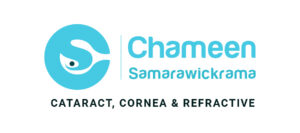Australian summers are stunning, but they come with a hidden risk. Australia experiences some of the highest UV levels in the world, putting eye health at serious risk. While most people are aware of sunburn and skin cancer, far fewer realise the harmful effects UV exposure can have on the eyes.
If you live in the Blacktown or Norwest area, you’re familiar with how intense the summer sun and dry conditions can be. This article explores science-backed ways to protect your eyes, explains effective prevention methods, and highlights when it’s important to seek expert eye care advice.
Why Is Eye Protection in Summer So Important?
Your eyes, just like your skin, are vulnerable to UV radiation. Acronym aside, the Australian Radiation Protection and Nuclear Safety Agency (ARPANSA reports that long-term exposure to UV light can cause the following:
- Photokeratitis (in effect, this is sunburn of the eye.) This can cause not only temporary loss of vision but pain and sensitivity to light.
- Cataracts: UV light increases the rate of clouding of the lens of the eye.
- Macular degeneration: Long-term exposure can damage the retina and result in permanent loss of vision.
- Pterygium: An abnormal growth on the white part of the eye and is associated with exposure to the sun.
- Eyelid cancer: The skin around the eyes is thin and particularly susceptible to UV damage.
7 Proven Ways to Protect Your Eyes in Summer
1. Wear Sunglasses with Certified UV Protection
Not all sunglasses are the same. Look for the words “100% UV protection” or “UV400.” This indicates it block both UVA and UVB rays.
- For less glare, choose polarized lenses- particularly when driving or near water.
- Wrap-around or oversized frames will also help protect peripheral vision.
- Do not get novelty lenses or those without clear certifications.
2. Combine with a Broad-Brimmed Hat
A wide-brimmed hat can reduce UV exposure to the eyes by up to 50%, especially during midday hours. This works best when paired with sunglasses, not as a replacement.
3. Avoid Sun Exposure During Peak UV Hours
The sun’s UV intensity is strongest between 10 a.m. and 4 p.m. Use the Bureau of Meteorology’s UV Index daily to plan safer outdoor hours. When the index is 3 or above, sun protection is essential—even on cloudy days.
4. Practice Caution Around Water, Sand, and Concrete
UV rays reflect off surfaces like water and pavement, intensifying exposure. For example, snow and water can reflect up to 80% of UV rays, doubling your risk. Always wear eye protection during beach visits, pool days, or water sports.
5. Use Artificial Tears in Dry, Windy Conditions
Summer heat, air conditioning, and outdoor winds can dry your eyes. This makes them more sensitive to allergens and debris.
- Carry preservative-free lubricating eye drops.
- Blink often and wear sunglasses in windy conditions.
- Stay hydrated to support healthy tear production.
6. Be Mindful with Sunscreen Application
Chemical sunscreens can irritate the eyes if applied too close to the lash line. Use mineral-based sunscreens with zinc oxide or titanium dioxide around the eyes, and avoid rubbing your eyes after applying.
7. Rinse Eyes After Swimming
Chlorine and bacteria in pools, lakes, or the ocean can irritate or infect your eyes.
- Avoid wearing contact lenses while swimming (unless with prescription goggles).
- Rinse your eyes gently with clean water or saline after swimming.
When Should You See an Eye Specialist?
Any persistent discomfort-burning, redness, blurry vision, or sensitivity to light after sun exposure may indicate photokeratitis or deeper damage.
In areas like Blacktown and Norwest, residents benefit from proximity to expert care. Professor Chameen Samarawickrama, Consultant Eye Surgeon, offers highly specialized services in cornea, cataract, and laser surgery.
With his surgical expertise and patient-first approach, he provides both preventative assessments and corrective solutions for UV-related damage.
FAQs
Q1: Do regular glasses offer UV protection?
No. Most prescription lenses do not block UV rays unless they are treated with UV-protective coatings. Ask your optometrist for UV-blocking lens options.
Q2: Are children more at risk from UV damage?
Yes. Children’s lenses are clearer and more susceptible to UV light. Encourage them to wear properly fitted sunglasses and hats during outdoor play.
Q3: Can UV exposure harm my eyes even in winter?
Yes. UV rays are present year-round. Even on overcast days, up to 80% of UV light can penetrate clouds.
Q4: Do contact lenses with UV protection replace the need for sunglasses?
No. While some contact lenses offer partial UV protection, they do not cover the eyelids or the skin around your eyes. Sunglasses remain essential.
Q5: How often should I get my eyes checked?
For most adults, an eye exam every 1–2 years is recommended. If you spend significant time outdoors or have pre-existing eye conditions, annual visits are ideal.

Great tips! Protecting our eyes from the sun is just as important as protecting our skin.